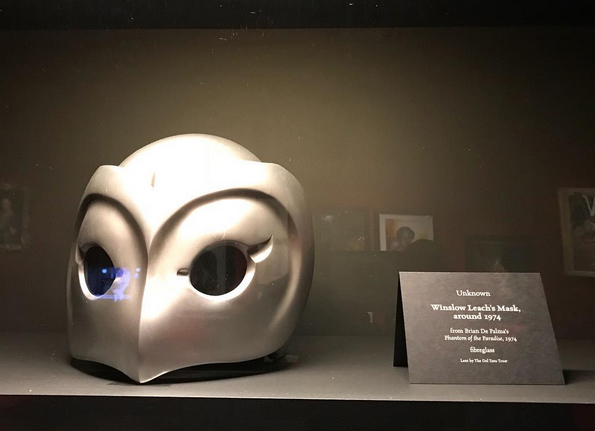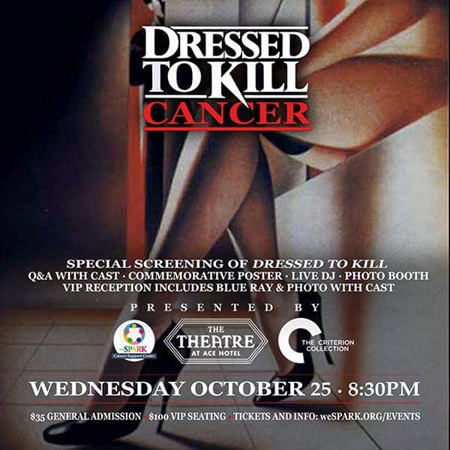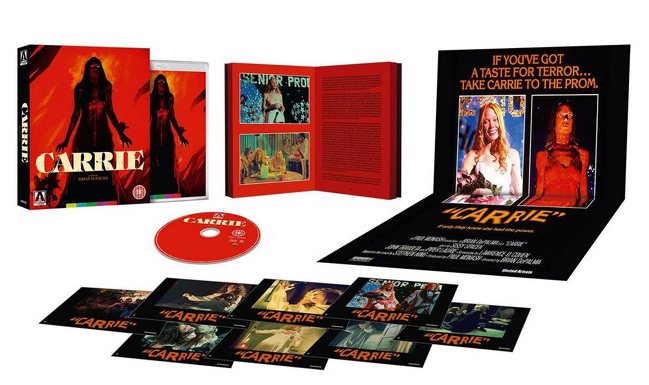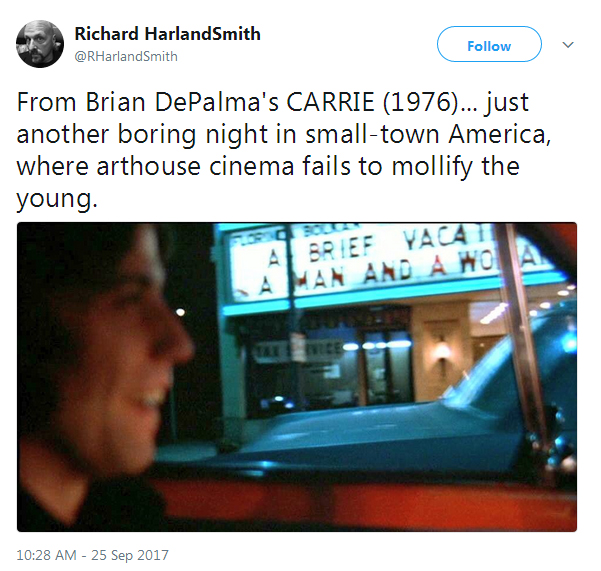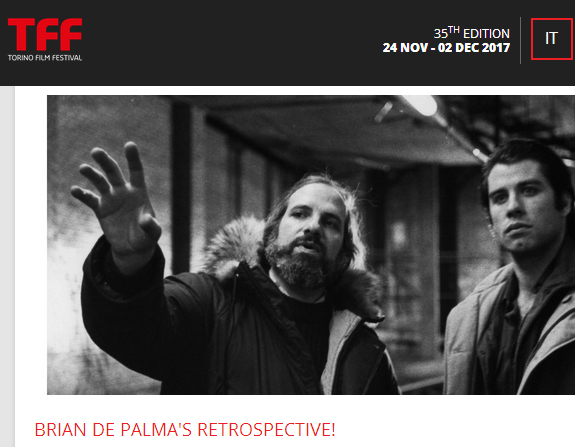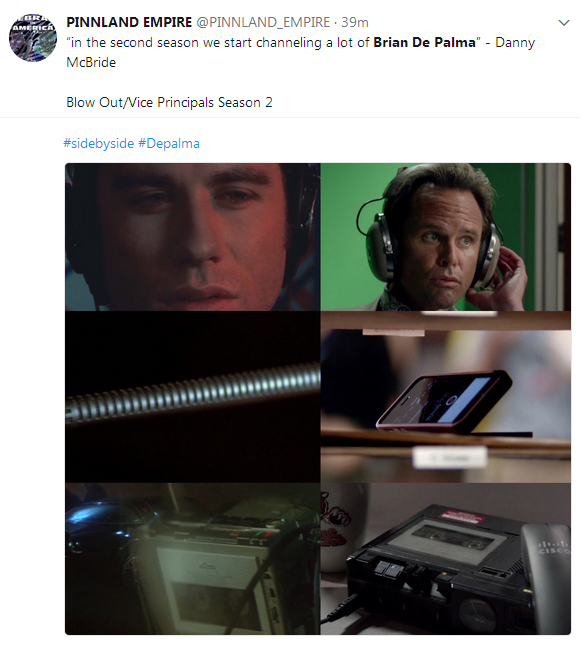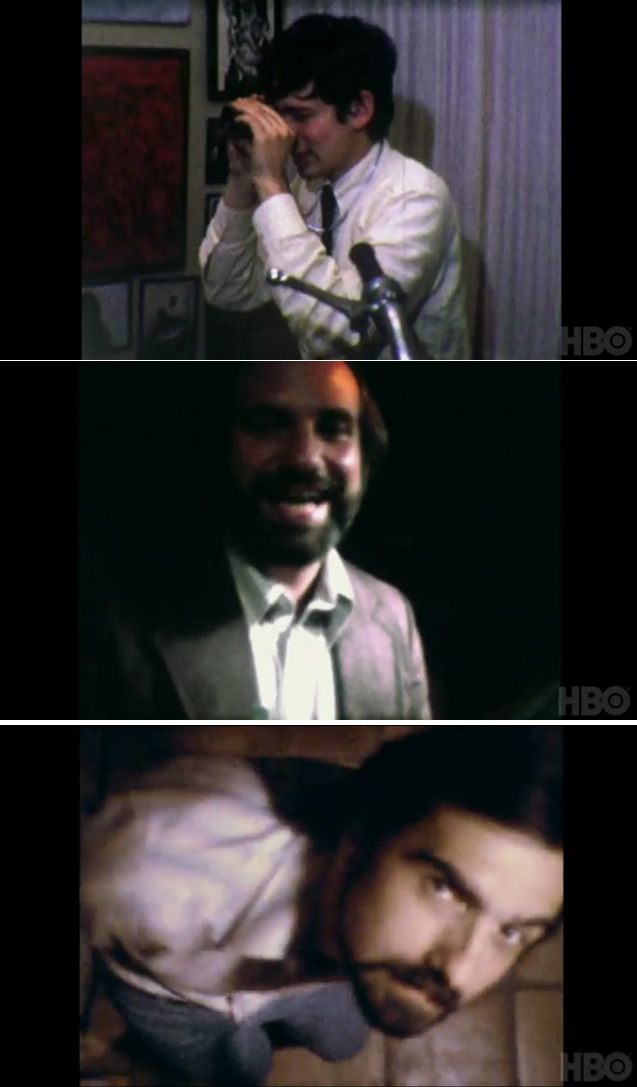SCORES ON SCREEN - 'CARRIE' THEMES FOCUS MORE ON TRAGEDY & DRAMA THAN HORROR
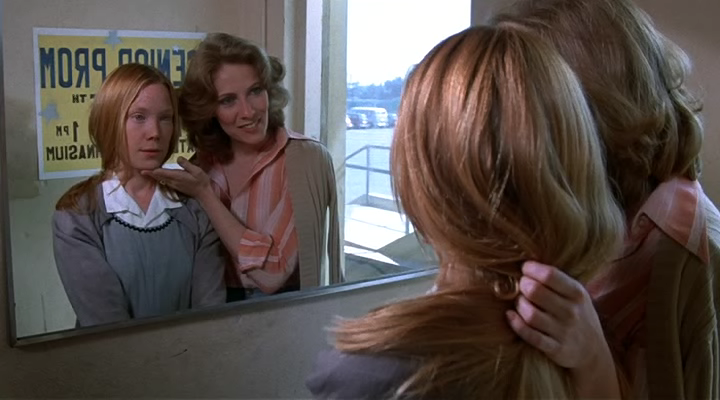
In her Scores On Screen column for MUBI last week, Clare Nina Norelli examined Pino Donaggio's score for Brian De Palma's Carrie. Here's an excerpt:
It was Donaggio’s feeling that Carrie was a film concerned more with the tragedy and drama of Carrie’s existence than horror, and this sentiment is reflected in the romantic Italiana of his locker room music. Instead of commenting on Carrie’s violent trajectory in his opening theme, which many other horror composers would feel obliged to do to immediately establish an atmosphere of dread, Donaggio’s unassuming theme instead implores us to feel empathy for the lonely Carrie. The opening theme, which really is Carrie’s theme, returns throughout the film in fragments and in variation, and is heard predominantly in moments where compassion is being shown towards Carrie. In one of the film’s most tender moments, for example, Carrie’s gym teacher Miss Collins (Betty Buckley) takes Carrie aside and gives her a pep talk in a bid to help build her self-esteem. In this scene, the theme is stripped down and orchestrated using instruments with a warmer tone. Carrie’s flute melody is heard once again, but instead of strings and piano being in support, the accompaniment is performed by acoustic guitar and a resonant Rhodes keyboard. Such tender orchestration allows for Miss Collins' kindness and the intimacy of the moment to be greater realized.As well as scoring that reflects Carrie’s innocence, Donaggio’s score also highlights Carrie’s violent tendencies and supernatural abilities. In an obvious homage to Bernard Herrmann and his score for Psycho (Alfred Hitchcock, 1960), Donaggio uses “stabby” string stingers whenever Carrie feels threatened and utilizes her telekinetic abilities. When she knocks the school principal’s ashtray of his desk; forces an annoying boy off his bike; throws her Mother on to the bed, a high-register string motif is heard that resembles Herrmann’s string writing in the infamous shower murder scene in Psycho. Elsewhere, the strings are used for atmospheric effect, their dissonant, sustained harmonies creating a disturbed ambience, particularly in scenes within Carrie’s home where her puritanical mother, Mrs. White (Piper Laurie), seeks to control and punish Carrie. The destructive nature of Mrs. White’s religious fundamentalism is also commented upon in Donaggio’s score. When Carrie is locked in a closet and ordered to pray for her sins after Mrs. White learns that Carrie has menstruated for the first time (the beginning of the end, in Mrs. White’s view), a church organ erupts on the soundtrack accompanied by unsettling low register, tremolo strings, implying a direct connection between Mrs. White’s fanaticism and Carrie’s telekinesis.
In the film’s climactic prom scene, Donaggio’s romantic music and dark scoring play off each other to indicate the fragmentation and eventual coalescence of the two aspects of Carrie’s psyche. Sentimental love ballads are heard (sung by Amy Irving, who plays “Sue” in the film) [ala-mod editor's note: the songs are actually sung by Katie Irving, not Amy Irving] that underscore the burgeoning love affair between Carrie and her date Tommy (William Katt). One of the songs is a version of the film’s main theme, entitled “Born to Have It All” on the film’s soundtrack release, with lyrics given to Carrie’s flute melody that convey both the romantic longing Carrie is experiencing as well as the horror that is about to take place:
You were born to touch
To want too much
Let the bodies fall
You were born to have it allWhilst Carrie and Tommy bond, several of Carrie’s classmates are conspiring to rig the vote for prom queen and king at the school dance in order to exact a horrible prank upon her. We hear atonal disjointed strings as Norma (P.J. Soles) goes from table to table collecting votes from the prom-goers. The camera tracks her movement around the auditorium until she arrives at the stage, where Chris (Nancy Allen) and Billy (John Travolta) are waiting underneath to pull the string on a bucket of blood hanging above the stage that is intended for Carrie. As the camera moves up to reveal the bucket, we hear a fragment of Carrie’s flute melody on a sparkling glockenspiel, as if the melody was suddenly electrified, and it is cut off abruptly on a dissonant chord. It’s a warning of what is to come, that the last vestiges of Carrie’s innocence are slowly being eroded. And as Carrie and her date Tommy walk to the stage when they are announced as prom queen and king, the same interchanging of Carrie’s theme and the menacing strings occurs on the soundtrack before all hell breaks loose and Carrie can no longer remain the cowering girl she once was.
Updated: Monday, October 2, 2017 12:30 AM CDT
Post Comment | Permalink | Share This Post




